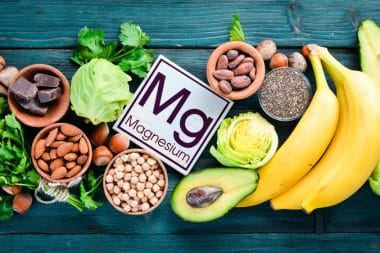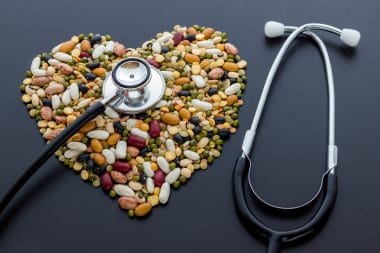It seems like both vegetarian and vegan diets are not a temporary trend. On the contrary, there are more and more people who decide to give up eating meat or any animal products. The reasons vary: they realize the environmental impact of animal agriculture, they don’t want to live with the thought of hurting even a single animal, or they simply notice that it’s not healthy for them. Whatever their reason to switch, many of them find themselves in a pickle: how will they provide their organisms with everything they need? What about protein? They can only be found in meat, right? Well, no. There are many products and meals for vegetarians and vegans that can replace animal protein, and here are some ideas for you:
1. Quinoa
Quinoa is not only a rich source of protein, but it’s also a fantastic addition to every meal. It tastes a little bit like couscous, but it’s crunchier and has a slight taste of nuts. It doesn’t grow from grasses like other grains, though; it’s another advantage, as quinoa is considered as pseudocereal and is naturally free of gluten. One cup of cooked quinoa will provide you with approximately 8 grams of protein, but that’s not all; it’s also a rich source of magnesium, iron, fiber, and zinc. There are many extravagant, rich and tasty recipes, but if you’re feeling lazy, it’s enough to have some quinoa with vegetables and spices to eat a nutritious and delicious meal. Oh, and if you want to ask for it, it’s “keen-wah.”
2. Tofu, Tempeh, Edamame
These three products all come from soybeans, which are a whole source of protein (it means that it gives you everything you need when it comes to amino acids).
Tofu doesn’t taste of anything, which is a huge advantage, as it will absorb all the spices and flavors you choose to add to it. It’s made from soybean curds, much like cheese, in the process of pressing them together. You can add it to anything that comes to your mind: pasta, smoothie, puddings, baking, salads, sandwiches, and many, many more.
Tempeh, on the other hand, has a slightly nutty taste, but, as long as you like the combination, it can also be used in basically anything. It’s made by cooking and fermenting soybeans, which are later pressed into a patty.
Edamame are immature soybeans, they taste a little bit sweet and are best when added to soups and salads, or on their own.
Apart from being a rich source of protein, tofu, tempeh, and edamame contain a lot of iron and calcium. Edamame will also provide you with folate, vitamin K and fiber, while tempeh is an excellent source of probiotics, vitamin B, and other minerals, like magnesium.
3. Beans
Beans will provide you with proteins and both soluble and insoluble types of fiber. They help you digest and lower your cholesterol. They are a great addition to a variety of meals: pasta, veggie burrito, salads, even sandwiches, and soups. It’s best to experiment with different kinds of beans: chickpeas, black, or heirloom beans. Try everything, and you will see which type goes best with particular dishes.
4. Lentils
They are small, extremely versatile, and easy to prepare, which makes them the perfect solution if you want to provide yourself with a much-needed portion of protein. They contain approximately the same amount of fiber as beans, but don’t need to be boiled for a long time. They also provide you with much-needed by your heart and nervous system folate. It’s best to cook them with products that contain vitamin C, as vitamin C helps to absorb the iron that lentils are also full of.
5. Nuts
We all love nuts, as long as we’re not allergic to some. They go well with many different ingredients – you can make some nut butter, add them to your stir fry or some regular pasta, or to a smoothie, or even make soup with them; they are also great as an afternoon snack. They are a good source of protein and monounsaturated fat, which will help you lower bad cholesterol. And if you’re allergic to nuts, you may try sunflower seeds.
6. Nutritional Yeast
It’s usually sold as a yellow powder of flakes. Because of its cheesy, a little bit nutty flavor, it’s widely used as a substitute for cheese by vegans. It also goes well with dishes like mashed potatoes, scrambled tofu, soups, and sauces; you may use it like parmesan on top of your pasta or popcorn. It will provide you with protein, fiber, zinc, magnesium, copper, manganese, and all the V vitamins.
7.Oats
Oatmeals are a great way to incorporate protein into your diet. They can be prepared in whichever way you like them most; they are delicious and easy to make. You may also bake with them or add them to other meals, e.g., veggie burgers. Apart from protein, oats contain fiber, magnesium, zinc, phosphorus, and folate. They won’t give you all the protein you need, but they are still more abundant in it than other grains, like wheat or rice.
Experiment and Have Fun
Any time you change your diet, especially if it’s as significant a change as giving up meat, you are forced to stop and think about what you eat. It doesn’t have to be problematic. Allow yourself to experiment, do some research, and have some fun in the kitchen! You are about to discover a whole new variety of tastes.








Reply